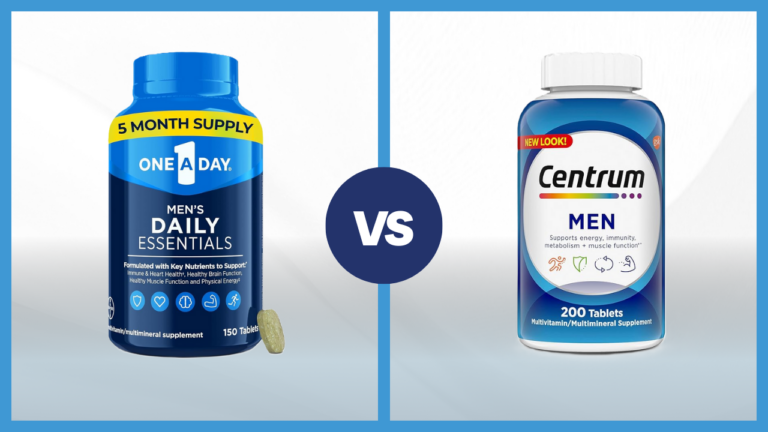Men’s health and nutrition are critical aspects of overall well-being that often get overlooked in our busy lives. Understanding the unique nutritional needs of men, along with the health challenges they face, can pave the way to a healthier, longer life. This comprehensive guide will delve into essential health tips, dietary recommendations, and lifestyle changes to help men achieve optimal health.
The Importance of Men’s Health
Understanding the significance of men’s health begins with recognizing that men and women have different nutritional and health requirements. Due to biological and lifestyle differences, men are more prone to certain conditions such as heart disease, diabetes, and prostate issues. Hence, focusing on preventative care and healthy habits is paramount.
Transitioning to Preventative Care
Preventative care encompasses regular health screenings, maintaining a balanced diet, exercising, and avoiding harmful habits such as smoking and excessive drinking. Regular check-ups can help detect potential issues early, ensuring timely treatment. Men should prioritize annual physicals and screenings for blood pressure, cholesterol levels, and blood sugar to keep potential problems at bay.
Nutritional Needs for Men
Nutrition plays a crucial role in maintaining health and preventing disease. Men require a well-balanced diet rich in essential nutrients to support their active lifestyles and reduce the risk of chronic diseases.
Transitioning to a Balanced Diet
A balanced diet for men includes an appropriate mix of macronutrients—carbohydrates, proteins, and fats—along with vital micronutrients like vitamins and minerals. Let’s explore the key components of a healthy diet for men.
1. Protein
Protein is essential for muscle repair, growth, and overall body function. Men, particularly those who are active or engage in strength training, need ample protein. Sources of high-quality protein include lean meats, fish, eggs, dairy products, legumes, and plant-based proteins such as tofu and tempeh.
2. Carbohydrates
Carbohydrates are the body’s primary energy source. However, it’s crucial to choose complex carbohydrates like whole grains, vegetables, fruits, and legumes over simple sugars found in processed foods. Complex carbs provide sustained energy and are rich in fiber, which aids in digestion.
3. Fats
Healthy fats are vital for brain health, hormone production, and overall cell function. Men should focus on consuming unsaturated fats found in avocados, nuts, seeds, olive oil, and fatty fish. It’s important to limit intake of saturated and trans fats, commonly found in fried and processed foods, to reduce the risk of heart disease.
Transitioning to Essential Micronutrients
Vitamins and minerals play critical roles in various bodily functions. Here are some key micronutrients particularly important for men:
4. Vitamins
- Vitamin D: Essential for bone health and testosterone production. Sources include sunlight exposure, fatty fish, fortified dairy, and supplements.
- B Vitamins: Crucial for energy production and red blood cell formation. Found in whole grains, meat, eggs, and dairy.
- Vitamin C: Important for immune function and skin health. Abundant in citrus fruits, berries, and vegetables.
5. Minerals
- Zinc: Supports immune function and testosterone levels. Found in meat, shellfish, legumes, and seeds.
- Magnesium: Aids in muscle and nerve function, and energy production. Present in nuts, seeds, leafy greens, and whole grains.
- Iron: Necessary for oxygen transport in the blood. Red meat, poultry, fish, legumes, and fortified cereals are good sources.
Exercise and Physical Activity
Regular physical activity is essential for maintaining a healthy weight, reducing the risk of chronic diseases, and improving mental health. Men should aim for at least 150 minutes of moderate-intensity aerobic exercise or 75 minutes of vigorous-intensity exercise per week, coupled with strength training activities on two or more days per week.
Transitioning to Exercise Benefits
Exercise benefits include improved cardiovascular health, better muscle strength, enhanced mood, and reduced stress levels. Activities can range from walking, running, and cycling to weightlifting, yoga, and team sports. It’s important to choose exercises that are enjoyable and sustainable to maintain long-term fitness.
Mental Health and Stress Management
Mental health is a critical, yet often overlooked, aspect of men’s health. Men are less likely to seek help for mental health issues due to societal stigmas, which can lead to severe consequences.
Transitioning to Mental Wellness
Maintaining mental wellness involves recognizing stressors, developing coping mechanisms, and seeking professional help when necessary. Techniques such as mindfulness, meditation, deep breathing exercises, and regular physical activity can significantly reduce stress and improve mental health. Additionally, fostering strong social connections and engaging in hobbies can provide emotional support and a sense of fulfillment.
Avoiding Harmful Habits
Certain habits can negatively impact men’s health. Smoking, excessive alcohol consumption, and poor dietary choices are common culprits that contribute to chronic diseases.
Transitioning to Healthier Choices
Quitting smoking and limiting alcohol intake are crucial steps towards better health. Men should seek support groups, counseling, or medical treatments to help overcome these addictions. Moreover, adopting a diet rich in whole foods and low in processed foods can prevent various health issues and promote longevity.
Importance of Sleep
Quality sleep is fundamental to overall health. Men should aim for 7-9 hours of sleep per night to support bodily functions, improve mental health, and enhance physical performance.
Transitioning to Sleep Hygiene
Good sleep hygiene includes maintaining a regular sleep schedule, creating a comfortable sleep environment, avoiding screens before bedtime, and limiting caffeine and heavy meals in the evening. Implementing these practices can significantly improve sleep quality and overall well-being.
Hydration
Staying hydrated is essential for optimal health. Water plays a crucial role in bodily functions, including temperature regulation, joint lubrication, and nutrient transportation.
Transitioning to Hydration Habits
Men should aim to drink at least 3 liters of water per day, adjusting based on activity level and climate. Incorporating water-rich foods like fruits and vegetables can also contribute to overall hydration.
Resources for Men’s Health and Nutrition
For further information and resources, consider exploring the following websites:
- The Cool Dad: Offers products and advice on men’s clothing, gear, and healthcare to help fathers enhance their lifestyles.
- Men’s Health: Provides comprehensive information on fitness, nutrition, and overall health.
- Choose My Plate: Offers dietary guidelines and resources to help individuals create a balanced and healthy eating plan.
Conclusion
In conclusion, men’s health and nutrition require a holistic approach that includes a balanced diet, regular exercise, mental wellness, and healthy habits. By prioritizing these aspects, men can improve their quality of life and reduce the risk of chronic diseases. Explore the recommended resources and make informed choices to embark on a journey towards optimal health and well-being.
Remember, small changes can lead to significant improvements. Start with one aspect, such as incorporating more fruits and vegetables into your diet or adding a daily walk to your routine, and gradually build on these healthy habits. Your future self will thank you for the effort and dedication you invest in your health today.
Additional Resources
For more detailed information and guidance, check out these additional resources:
- American Heart Association: Offers information on heart health, nutrition, and exercise.
- Centers for Disease Control and Prevention: Provides data and recommendations on men’s health issues.
- National Institute of Mental Health: Offers resources and information on mental health and wellness.
By utilizing these resources and implementing the tips and strategies outlined in this guide, men can take proactive steps towards achieving and maintaining optimal health.
FREQUENTLY ASKED QUESTIONS
Essential nutrients for men include protein, healthy fats, vitamins (A, B, C, D, E), minerals (calcium, magnesium, zinc), and fiber. A balanced diet incorporating these can support muscle growth, bone health, and overall well-being.
Maintaining a healthy weight involves a combination of regular physical activity, a balanced diet rich in whole foods, portion control, and staying hydrated. Monitoring calorie intake and avoiding processed foods and sugary drinks also play a crucial role.
Effective exercises for men’s health include strength training (weightlifting), cardiovascular exercises (running, cycling, swimming), flexibility workouts (yoga, stretching), and high-intensity interval training (HIIT). These can improve muscle mass, cardiovascular health, and overall fitness.
Protein intake varies based on age, weight, and activity level, but generally, men should aim for 0.8 to 1.0 grams of protein per kilogram of body weight. Athletes or those involved in intense training might require more, around 1.2 to 2.0 grams per kilogram.
Common health issues include heart disease, prostate cancer, diabetes, and mental health disorders. Preventive measures include regular medical check-ups, a balanced diet, regular exercise, stress management, and avoiding smoking and excessive alcohol consumption.
Improving mental health involves regular physical activity, maintaining a healthy diet, getting sufficient sleep, managing stress through mindfulness or relaxation techniques, staying connected with friends and family, and seeking professional help when needed.
Foods that can boost testosterone include lean meats, fish, eggs, nuts, seeds, leafy green vegetables, fruits like bananas and grapes, and healthy fats like olive oil and avocados. Avoiding excessive sugar and processed foods is also beneficial.
Men typically need 7-9 hours of sleep per night for optimal health. Quality sleep is essential for muscle recovery, mental health, hormone balance, and overall well-being.
Beneficial vitamins and supplements include Vitamin D, B-complex vitamins, Omega-3 fatty acids, magnesium, zinc, and probiotics. However, it’s best to get nutrients from a balanced diet and consult with a healthcare provider before starting any supplement regimen.
Effective stress management techniques include regular exercise, meditation, deep breathing exercises, maintaining a healthy work-life balance, engaging in hobbies, and seeking support from friends, family, or mental health professionals.
While there’s no one-size-fits-all diet, diets rich in whole foods, lean proteins, healthy fats, and plenty of fruits and vegetables are generally recommended. Diets like the Mediterranean diet and the DASH diet have been shown to have numerous health benefits.
Hydration is crucial for all bodily functions, including digestion, circulation, temperature regulation, and cognitive function. Men should aim to drink at least 3 liters (about 13 cups) of water daily, but this can vary based on activity level and climate.
Quitting smoking can be achieved through various strategies such as nicotine replacement therapy, prescription medications, counseling, support groups, and creating a quit plan. Combining multiple methods increases the chances of success.
Maintaining heart health involves regular exercise, a diet low in saturated and trans fats, avoiding smoking, managing stress, controlling blood pressure and cholesterol levels, and regular health screenings.
Fiber aids in digestion, helps maintain a healthy weight, lowers cholesterol levels, and reduces the risk of heart disease. Men should aim for 30-38 grams of fiber daily from sources like fruits, vegetables, whole grains, and legumes.







